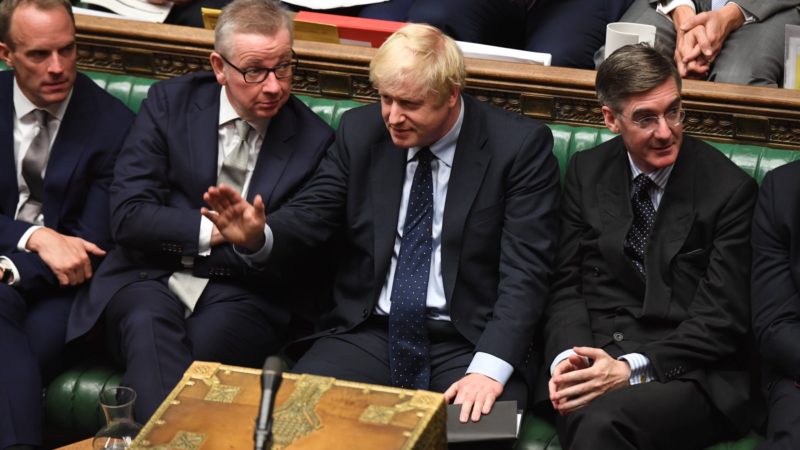
“After all the delays, all the slogans, all the big promises. Is this it?” asked Lisa Nandy after Michael Gove’s “levelling up” white paper statement. “They tell us to wait till 2030. But where have they been for the last 12 years?” she said. “He talks about 12 missions. This is 12 admissions of failure.” Rejecting the Govian aspiration to level up via “London-style regeneration”, she added: “We believe in our communities and our people – and we deserve a government that backs us. But they’ve given more to fraudsters than they’ve given to the North. For every £13 they’ve taken off us, they’ve given us £1 back. We get a partial refund and they expect us to be grateful. It’s not their money, it’s ours, and we want it back.”
Lisa Nandy’s speech on levelling up yesterday, which is worth a read in full, offered further evidence that the Labour frontbench is stronger and she in particular now has the job to which she was so obviously suited all along. Labour’s response to the white paper reflects its renewed willingness to talk about 12 years of Tory harm, now that Covid is slipping down the news agenda, with Wes Streeting in health also focusing on the pre-pandemic state of the NHS to drive this point home. It also linked up with how Rachel Reeves talks about wasteful government spending in a patriotic way, emphasising public ownership of tax revenues. (A final quick note: I also appreciated Nandy’s use of “we”: when Labour MPs recently tweeted “he’s laughing at you” to attack Boris Johnson, it felt like they were egging on a bully and only reinforced the idea of a homogenous political elite. He’s laughing at us was surely more appropriate.)
The focus today is on cost of living and specifically energy bills, with the rise in the cap being announced. We’re very lucky: Rishi Sunak is coming out of hiding, unveiling the new government plan in parliament at 11.30am and hosting a press conference at 5pm. Under pressure to act, it seems No 10 and the Treasury have come up with the policy of taking £200 off our bills this year, backed by state loans to energy companies, for households to repay over years to follow. Other targeted help is also expected. Labour has already criticised the “buy now, pay later” scheme, preferring its solution of a VAT cut funded by a windfall tax on oil and gas profits, and a warm homes discount increase. As Torsten Bell says, the higher bills tomorrow for not quite such a big rise today is “a massive political gamble” – and the main benefit seems to be that it looks better on government books than other proposals.
Sign up to LabourList’s morning email for everything Labour, every weekday morning.



More from LabourList
Restoration announce recommendations for NEC candidates
‘Factionalism at the top is weakening Labour – and handing a gift to Reform’
‘Europe must stand strong on its own as US security guarantees grow conditional’